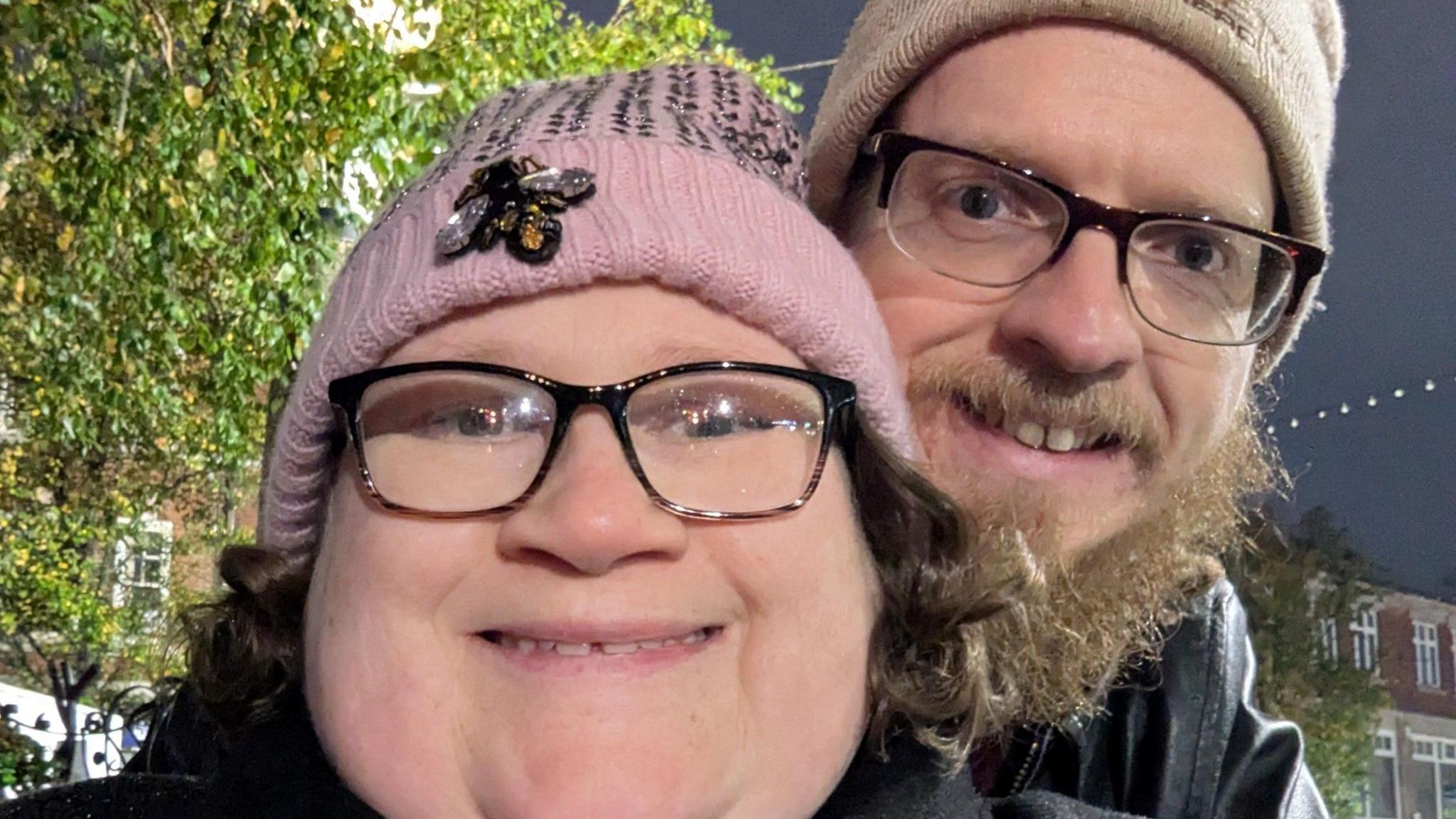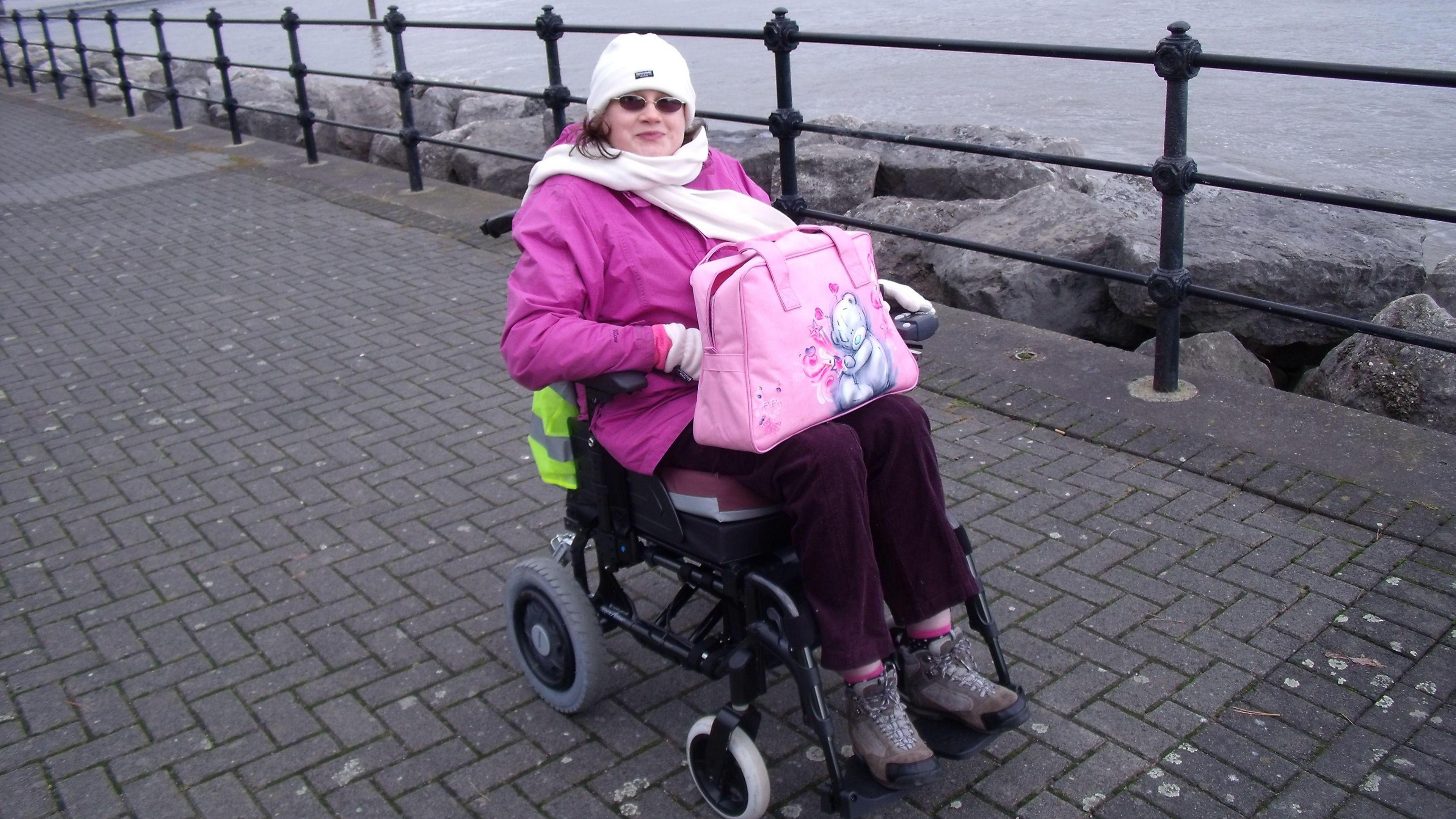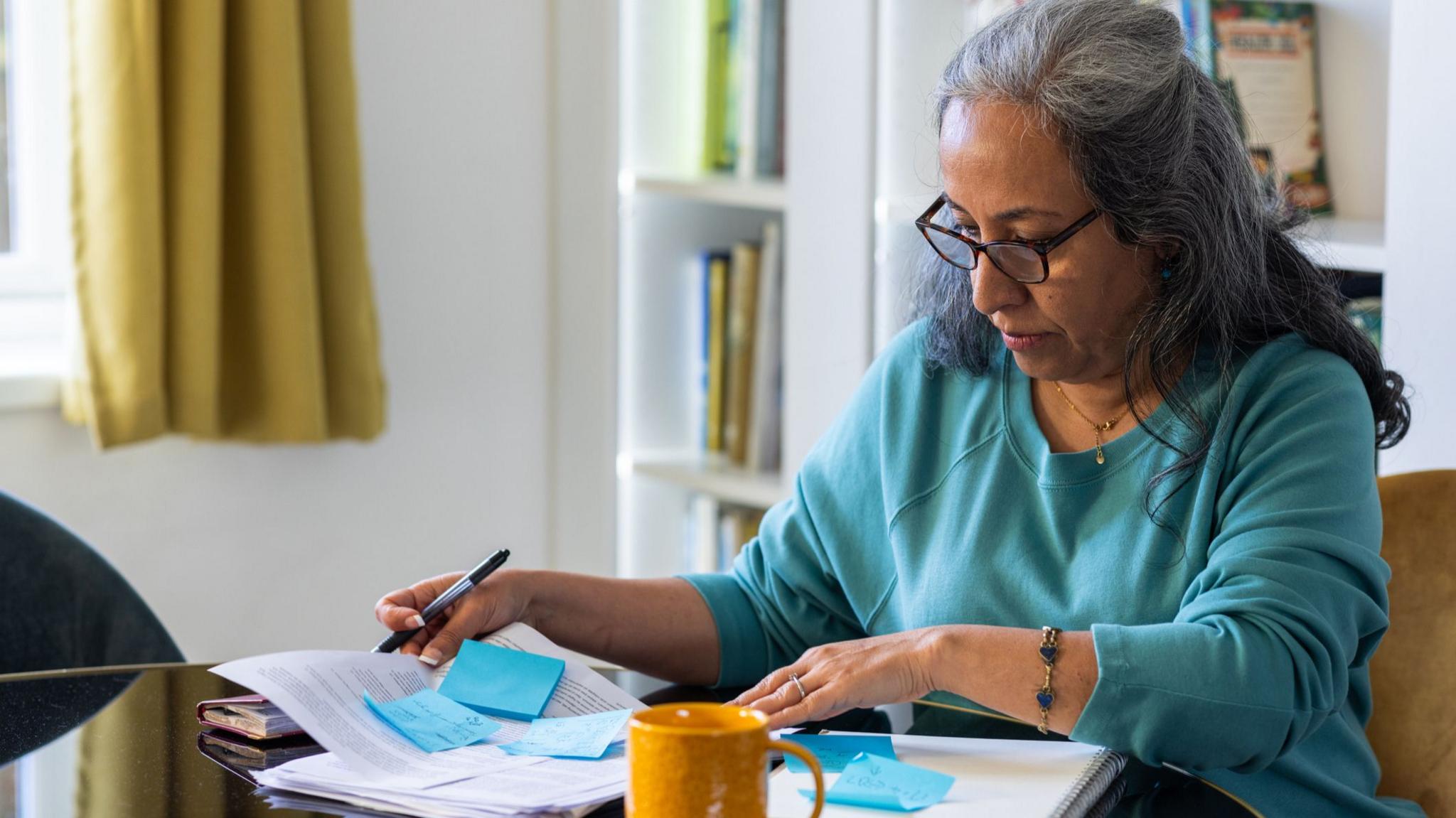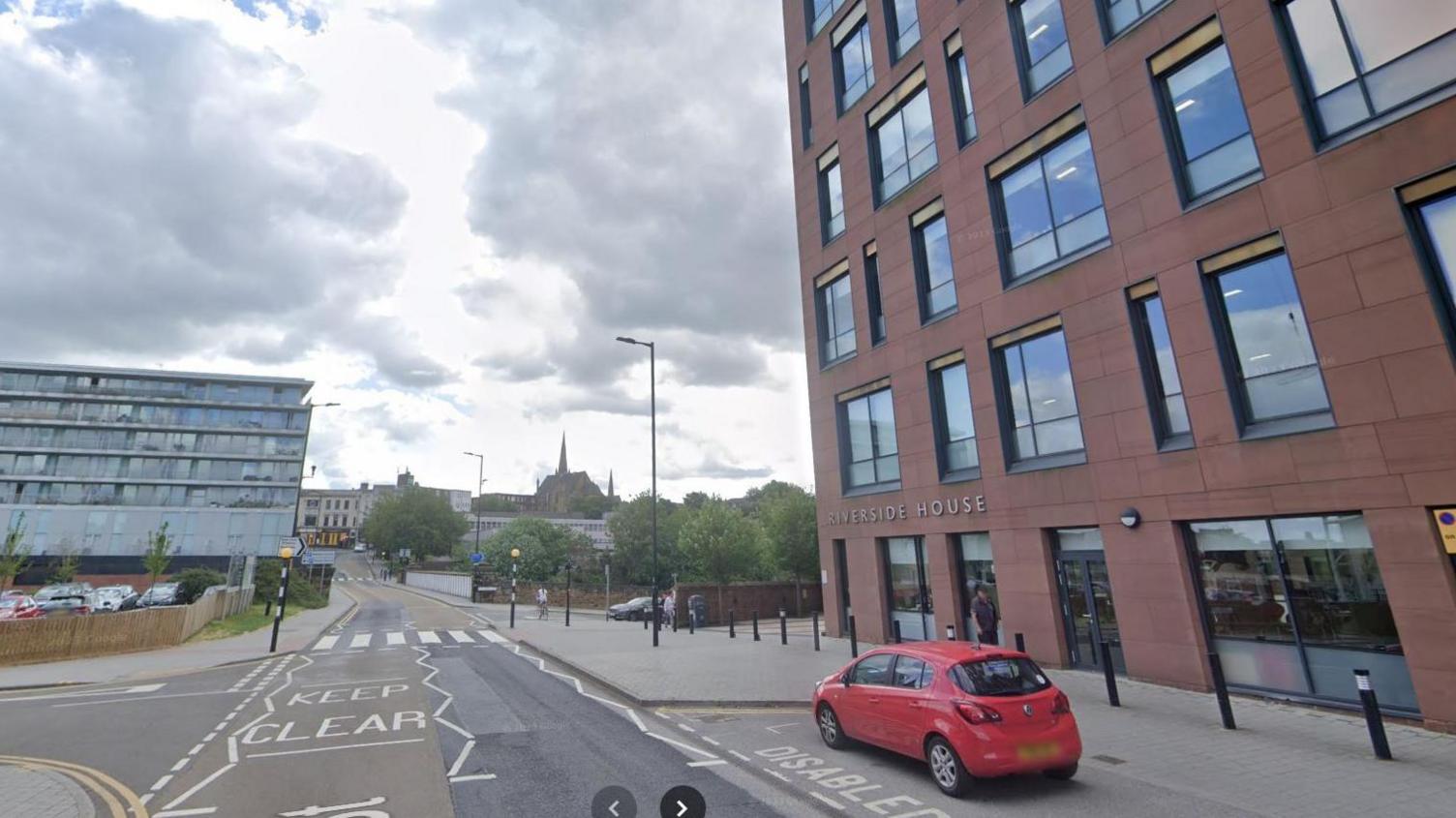Disabled woman calls for transparency in care money

Julie Sharp receives 85% of her funding from Rotherham Council and 15% from the NHS
- Published
A woman from South Yorkshire says the adult social care system is "broken" and has called for greater transparency in the funding process.
Julie Sharp was born with triple X syndrome, a genetic condition, and is autistic. She uses a wheelchair on a daily basis and requires a care worker to help with daily tasks including personal hygiene and meal preparation.
Her support funding is split between Rotherham Council and the NHS and says not all of her health needs are being met, with the 39-year-old calling for a simpler system.
The council said it worked with the NHS and other partners "to ensure a holistic approach in meeting needs is adopted by the most appropriate agency".
Ms Sharp said she received 85% of funding from the council and 15% through the NHS, adding it meant she was "expected to go without" parts of her care.
"It just feels like I'm constantly a ping pong ball going across a table bounced backwards and forwards," she said.
"Meanwhile, my life's on hold - I'm stuck."
Triple X syndrome, where a female is born with an extra X chromosome, can cause problems with speech and coordination, as well as weaker muscles.
She said her care package did not cover many health-related costs or help with paying for transport to appointments.
"Social care and continuing healthcare can't decide who should fund me and who shouldn't fund me," she said.
"It is like washing and dressing twice a day is enough for someone and they do not deserve anything other than to be washed and dressed twice per day."
Ms Sharp was originally given the opportunity to arrange and pay for her own care services instead of having services directly provided.
This system gives individuals the opportunity to hire care workers and buy equipment to meet their needs.

Ms Sharp, who is classed as disabled, was born with triple X syndrome and is autistic
Earlier this year, Ms Sharp returned her direct payment to Rotherham Council after finding it impossible to recruit staff herself to meet her needs.
She has since asked for help to find a support worker for personal care and another for social support, but the council has been unable to find her these.
Due to this, Ms Sharp said she was reliant on her husband and her father to support her with needs including pushing her wheelchair, monitoring symptoms and assistance with administering medicine.
"If my family were no longer around I would end up living in hospital forever," she said.
Discussing the funding process, she said: "Why are they funding me through two different streams?
"I'm 100% me. Surely my funding should be 100% for me."
She added: "It should just be about enabling me to do what everyone else takes for granted."
'Transparency isn't optional'
The Access Social Care (ASC) charity said it had campaigned for four years for the government to disclose how it made decisions on social care funding and echoed Ms Sharp's calls for transparency.
Three government departments lodged an appeal against orders to disclose information about how social care funding is calculated, ASC said, with the appeal currently being heard by the Information Rights Tribunal.
The BBC approached the government for comment but is yet to receive a response.
Kari Gerstheimer, ASC chief executive officer, said: "Transparency isn't optional, it's the foundation of a fair and accountable social care system.
"The public, local councils, and specialist organisations all deserve to know how social care funding is decided."
In response to Ms Sharp's case, Ian Spicer, Rotherham Council's strategic director of adult social care, housing and public health said: "The council has a duty to operate within relevant legislative frameworks and guidance.
"Where a need relates to a health function, the council is unable to commission these without delegated authority from the NHS South Yorkshire Integrated Care Board.
"However, the council continues to work in partnership with the relevant NHS integrated care board, as well as other partners, to ensure a holistic approach in meeting needs is adopted by the most appropriate agency."
Get in touch
Tell us which stories we should cover in Yorkshire
Listen to highlights from South Yorkshire on BBC Sounds, catch up with the latest episode of Look North
Related topics
Similar stories
- Published22 September

- Published11 February
